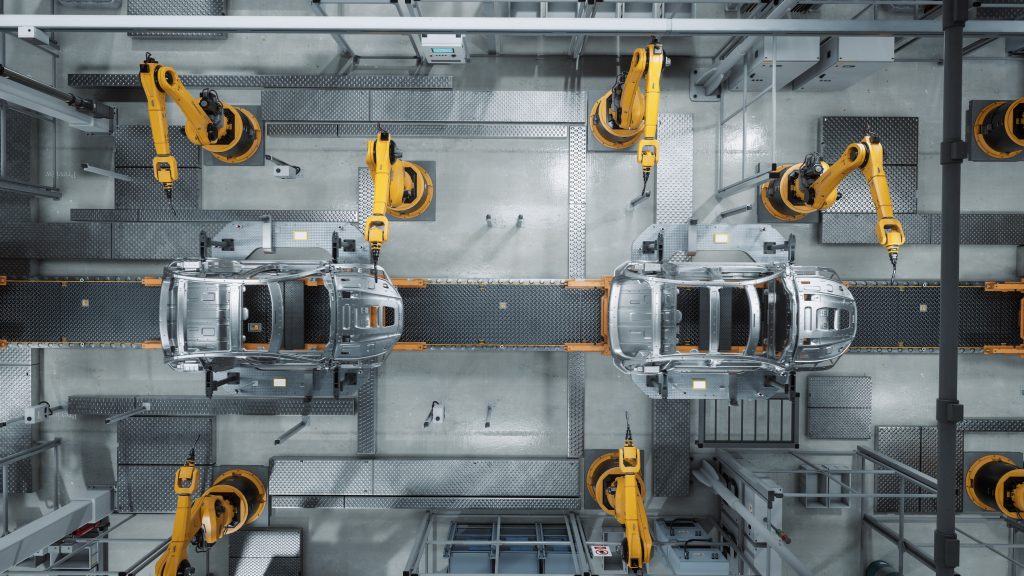In its quest to become a powerhouse in the electric vehicle (EV) sector, Saudi Arabia is pouring billions into investments. However, the nation faces significant obstacles including the development of necessary infrastructure, a shortage of skilled workers, and the absence of a mature local industry. Industry observers express doubts about the feasibility of the kingdom’s target to manufacture half a million EVs annually by the end of this decade, noting the competitive edge enjoyed by established global manufacturers.
Strategic Investments and Alliances
Under the guidance of Crown Prince Mohammed bin Salman, Saudi Arabia is seeking to broaden its economic horizons, which includes a hefty $10 billion investment in Lucid Motors, the launch of the local EV brand Ceer, and the construction of a factory dedicated to EV metals. The Public Investment Fund (PIF) is set on reaching a production milestone of 500,000 units by 2030. However, the kingdom’s first and only car factory, which commenced operations in September 2023, has only completed assembly of roughly 800 vehicles so far.
Past Setbacks and Present Endeavors
Previous efforts by Saudi Arabia to lure automobile manufacturers were not successful. For instance, Toyota turned down a proposition in 2019, citing the high cost of labor, the scarcity of local suppliers, and the limited size of the domestic market. The recent push is encountering similar challenges, with industry experts emphasizing the importance of nurturing a local industry that can provide automotive parts.
The PIF’s joint venture with Foxconn, Ceer, is aiming to roll out an automobile by 2025, but there are doubts about reaching ambitious production figures. Furthermore, Hyundai’s partnership with PIF, as well as initiatives from Lucid and Ceer, are intended to build an automotive hub in Jeddah. Nonetheless, there is skepticism regarding whether these moves will attract enough original equipment manufacturers to start producing locally.
China’s command over the EV supply chain and its manufacturing capabilities, exemplified by BYD’s leap over Tesla as the leading EV producer, represents a formidable challenge. Additionally, the Inflation Reduction Act in the United States could lead to substantial investments into EV production, escalating the level of worldwide competition.
Local Industry and Sustainability Efforts
One of the major challenges is enticing manufacturers of automotive components to set up shop due to the lack of a significant local industry. Ceer’s strategy to import parts, including batteries, from Germany’s BMW casts doubt on the kingdom’s capacity to achieve true self-sufficiency in production. Lucid’s decision to retain its supply chain within the U.S. may also restrict the growth of local manufacturing endeavors.
The Saudi government is demonstrating its commitment to sustainability by promoting Lucid vehicles at state events and planning to purchase up to 100,000 units over the next ten years. The PIF’s partnership with Lucid is seen as a vital step towards fostering an automotive ecosystem within the nation.
Resource Constraints
For Saudi Arabia to emerge as a nexus for EV battery production, access to raw materials such as lithium is essential. Although the country harbors ambitions to mine lithium domestically, confirmed reserves have not been disclosed. Current initiatives to extract lithium from brine are still in the experimental phase, signaling a reliance on imports for the time being.
Despite these challenges, global industry leaders recognize Saudi Arabia’s financial capacity, underpinned by the PIF. While monetary resources can address certain issues, the magnitude of the required investment might exceed initial projections.
Conclusion
Saudi Arabia’s ambitious pursuit of EV manufacturing prominence is characterized by hefty investments, strategic partnerships, and a focus on sustainability. Nevertheless, it must overcome a history of industrial challenges, fierce international rivalry, and the necessity to cultivate a solid local industrial base. The outcome will depend on how effectively the kingdom can utilize its financial resources to surmount these barriers.
